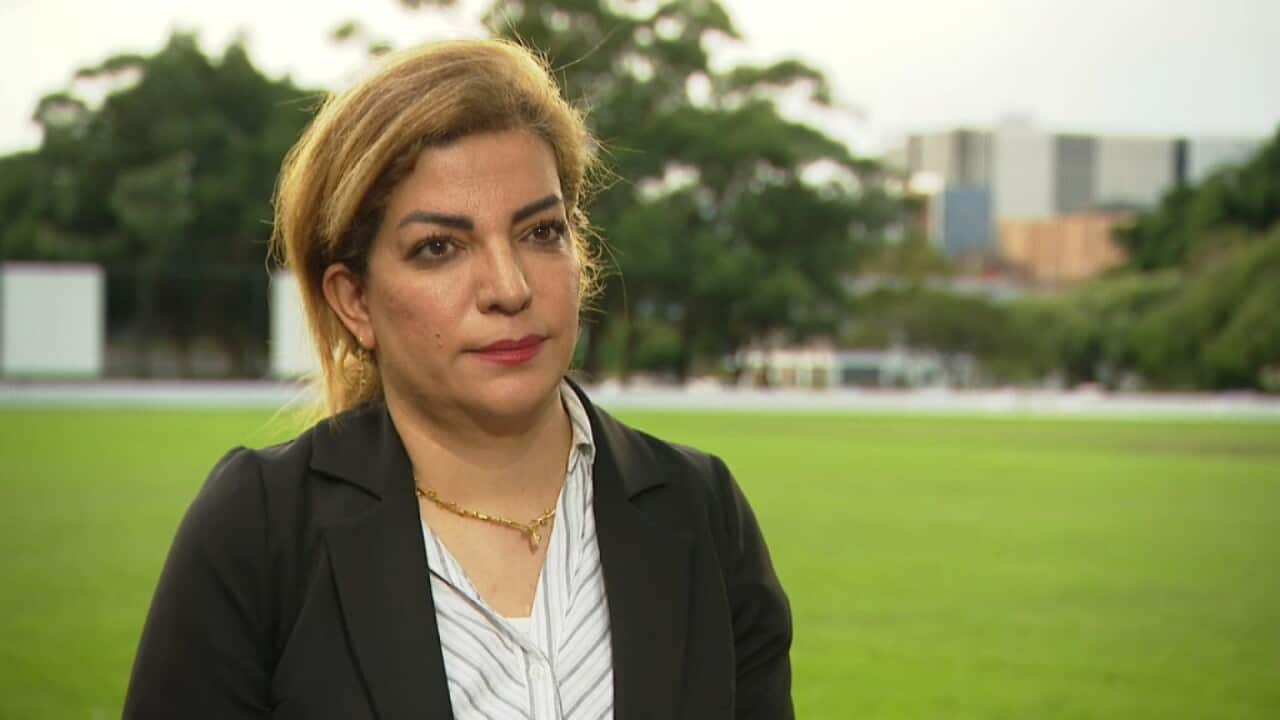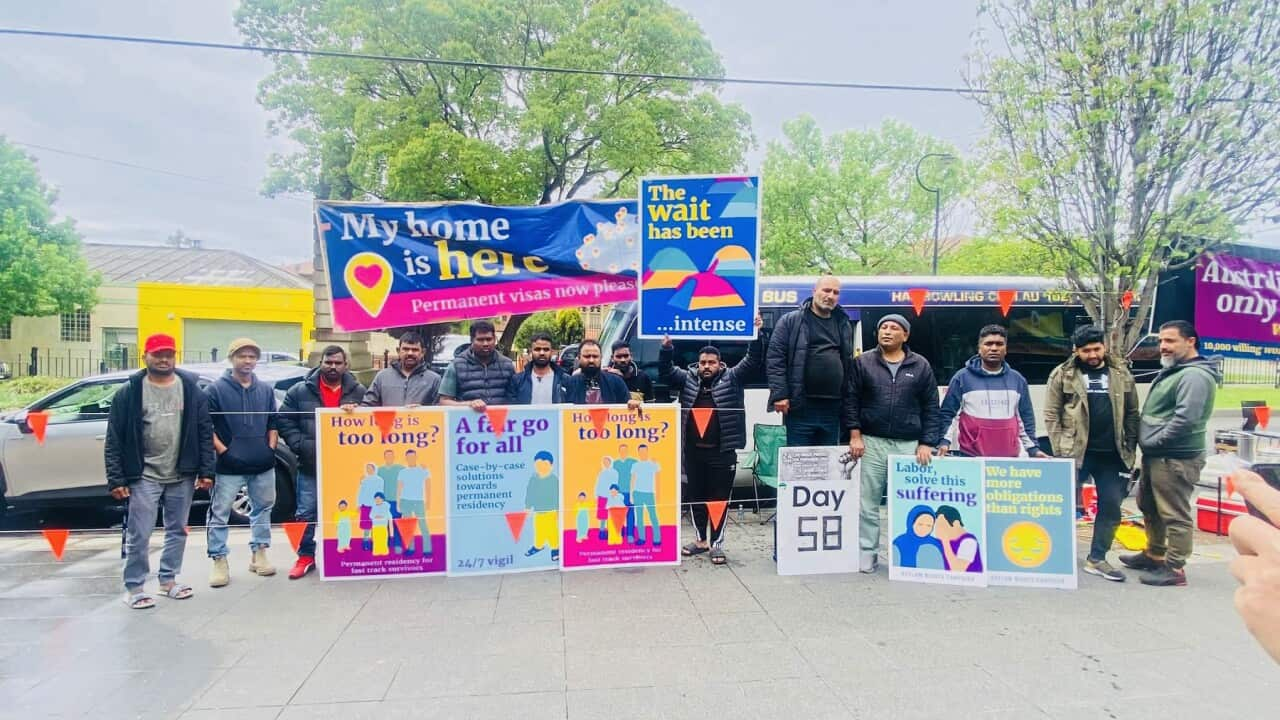TRANSCRIPT
PhD students say they're being left in limbo as changes to a popular temporary graduate visa are soon set to come into effect in Australia.
Originally from the United States, world class supervisors and scholarship opportunities drew Brian Barbour to Australia to do his PhD.
"My field is international refugee law, so I've been researching asylum systems and refugee protection in various jurisdictions in Asia. This isn't a field that pays a high salary. But it is one that I feel passionate about. And I feel good about coming to work and helping refugees. It's what I've always wanted to do with my career."
From July 1, the eligible age to apply for the Temporary Graduate Visa Class 485 will drop from 50 to 35.
The maximum stay period for doctoral graduates - after their degree - will also be halved from six to three years.
The changes do not apply to students with a Hong Kong or British passport.
At 47 years old, Brian says he's worried he'll no longer be eligible for the visa he had planned to transition to after his study.
"The student visa I'm on will expire shortly, and without the 485 visa, there really isn't any other kind of visa that I would be eligible for. So I'm 47 years old and this places me out of range of most visas. I could get a work visa, but I would need an employer already who is willing to sponsor that visa."
The change is part of the federal government's Migration Strategy, announced in December, which explained changes to the visa as being about "re-positioning" it "as a product for early career professionals who can contribute to the Australian economy over a longer period".
Brian says most PhD students he knows are older.
"They have been in the field for a while. They've done a lot of work, they become recognised and then they come to do the PhD - and those are the kind of candidates that the university is looking for. But that has implications for this visa. So, when immigration is talking about changing the 485, they're not thinking about the PhD candidates. They're not thinking about people like me in my situation."
Data from the Group of Eight most research-intensive universities and the Council of Australian Postgraduate Associations shows that in 2022, 40 per cent of PhD students in Australia were aged 30 and above.
Originally from Iran, Maryam Taheri came to Australia to do her PhD in chemistry, hoping to stay and continue her scientific career.
"I no longer see a clear path for my life after graduation, which negatively affect me and my family, and it seems like (they're) changing the rules in the middle of the game. And it's not just about for me; my 10-year-old son attending in primary school faces the prospect of having to leave the educational system in Australia; and readjusting to a new educational system, maybe in the future, which is unfair to him."
Students have told SBS they're now in a time crunch to find an employer who can sponsor them - while also trying to complete an intensive PhD.
In a statement to SBS, a department of Home Affairs spokesperson said:
"Graduates who have relevant work histories but are no longer eligible for the TGV (Temporary Graduate Visa) due to age restrictions will continue to have access to other temporary and migration pathways which will be enhanced as a part of the visa reforms following the Migration Strategy."
PhD candidate Brian Barbour says he would like the 485 visa to remain.
"As an alternative, we would like PhD students to be exempted from the changes. And as an alternative to that, we would like immigration to consider those of us who are already here. Those who came in reliance of the existence of the 485 visa and consider transition arrangements for those people who are already in the process."













